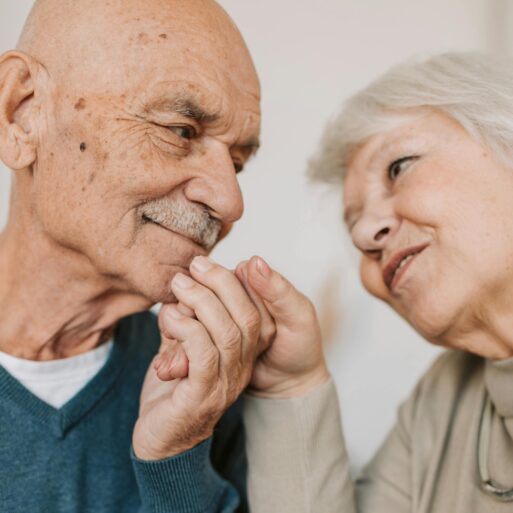
In “Thank You for Loving Me,” patients and family members cited love as a source of gratitude.
Credit: Vlada Karpovich
It’s widely understood that maintaining a sense of gratitude benefits patients in palliative care. But a series of letters and interviews in the study “Thank You for Loving Me” has provided greater insight into what gratitude means to patients and relatives, and how it reflects the way they view themselves and others.
The 2023 study, formally titled “‘Thank You for Loving Me’: A Qualitative Study on Perceptions of Gratitude and Their Effects in Palliative Care Patients and Relatives,” was initiated by Swiss researchers Emmanuelle Poncin and Mathieu Bernard. Their goal was to gain a better understanding of how gratitude is expressed and its effects during end-of-life care within families.
Gratitute as an Expression of Love
Data was collected from 23 patients and 13 relatives recruited at three hospital palliative care services in French-speaking Switzerland. Many identified love as the main object of gratitude. For example, this letter by a relative:
“The illness has befallen you, us, without any warning, turning everything upside down, rendering everything futile, superfluous, without any interest, everything but one essential thing: Love. The love that these terrible circumstances have, to my eyes, strengthened throughout these terrible moral and physical challenges that you overcame and that you are still facing today, so bravely.”
Multiple Ways to Experience Gratitude
The study also identified a variety of other ways that participants experienced gratitude. For instance, gratitude for little things that create a sense of well-being, as one relative expressed:
“There are … breaths of … happiness that come from I don’t know where. And I think that it’s linked with gratitude. When I enter my garden or I go stroll in the countryside, I feel such a sense of well-being.”
In a similar vein, one patient said it was a matter of “setting the bar lower: Just being able to get out of bed, get dressed without help, shower, get ready, meet people … all these, to me, are reasons to be grateful.” She further stated that:
“To be grateful also helps cheer you up, and I think that if we all made a little more effort to think about it, well maybe we would manage to improve our quality of life … we must hang on to every little thing that can show us that it’s still worth it and that’s what I told myself also when I learned that, on the face of it, what I have is incurable.”
For some participants, gratitude was about living in and appreciating the present moment, expressed in one letter as, “Every day is a pretty miracle that I savor next to you.”

Relatives often express gratitude in response to a patient demonstrating hope or acceptance.
Credit: Klaus Nielsen
Solace in the Midst of Serious Illness
During interviews, some family members defined gratitude as “a sort of grace,” a way to “live together as best we can and … to take things … positively.”
Some family members directed their gratitude at their loved one’s courage throughout the illness, with comments such as: “The way in which you [face] the illness also gives me a reason to thank you.”
For others, shared moments of emotional intimacy were the objects of gratitude, even when they were about the struggle: “Thank you for sharing in the everyday difficulties that the illness is imposing on you.”
Gratitude in Hope and Purpose
Family members also found gratitude in a patient’s expression of hope: “Today I thank you for accepting to fight, to combat this cancer so that we can still have beautiful years before us.”
And finally, gratitude was linked to a sense of purpose. Said one participant: “You are accepting what happened to you better than I do, in such a way that helping you isn’t a duty for me, but gives meaning to my life.”
The study concludes by affirming that gratitude is “a key to a good life, in which a person is fully able to love and appreciate life in general and other people in particular.”
Ultimately, researchers hoped their findings in “Thank You for Loving Me” would pave the way for a better integration of gratitude awareness into therapeutic approaches for palliative care patients and their families.

 “Thank You for Loving Me” Examines Gratitude in Palliative Care
“Thank You for Loving Me” Examines Gratitude in Palliative Care


 How Dare You Die Now!
How Dare You Die Now!

 “Help Me, Helen”
“Help Me, Helen”














